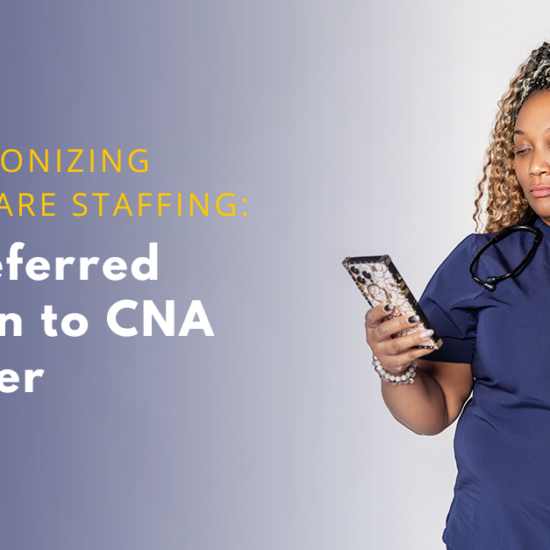COVID-19 Vaccine for Healthcare Workers: What You Need to Know Before Making an Informed Decision
The release of the COVID-19 vaccine has been a tremendous step in beating this global pandemic. As a healthcare worker, you are one of the first in line able to receive the vaccine; thus, questions may arise with your colleagues and patients about its safety and efficacy it becomes more widely available. Now that Americans and healthcare professionals, in particular, are starting to receive the vaccine at a more regular rate, we’re seeing many important questions circulate in our community surrounding the COVID-19 vaccine for healthcare workers.
Here we’ll discuss some common concerns we’re hearing about the COVID-19 vaccination, including its vast benefits, possible side effects, and more.
What are the Benefits of the COVID-19 Vaccine for Healthcare Workers and Beyond?
Experts agree that the benefits of the vaccine far outweigh the risks. According to the CDC, all vaccines now available in the US effectively prevent an individual from contracting COVID-19. Both the Pfizer and Moderna vaccines show an efficacy rate of about 95%.
Even if you get sick with COVID, the vaccine is highly effective at preventing you from becoming seriously ill from the virus. It may also prevent you from spreading COVID-19.
What are the Possible Side Effects of the COVID-19 Vaccine?
Side effects that have been reported include pain at the injection site, headache, fever, muscle aches, and fatigue. These symptoms are common with any type of vaccination and are typically short-lived, resolving after a day or two.
The CDC recommends anyone who experienced side effects after their vaccination to speak with their doctor about taking an over-the-counter medication, such as acetaminophen or ibuprofen. Exercising the arm and applying a cool washcloth to the injection area can also ease any discomfort.
Are People with Allergies Able to Receive the Vaccine?
The CDC recommends that people with allergies to certain foods, pets, latex, or other common allergens still receive the vaccine. If you have a history of severe allergic reactions (anaphylaxis) with other vaccines, it’s important to discuss this with your doctor before receiving it. Anyone with severe allergic reactions to any of the ingredients in the vaccine should not receive it.
As a safety precaution, you should be monitored onsite for at least 15 minutes after receiving the vaccine. Anyone with a history of allergic reactions to a vaccine or injectable therapy should be monitored for at least 30 minutes.
With the Rush to Develop the Vaccine, is it Safe?
Safety has been a priority throughout the development of the COVID vaccine. Although the vaccine was developed at an unprecedented pace, this does not mean that any important safety measures were skipped.
Governments were able to effectively fund the vaccine, and top infectious disease experts from across the globe were involved in its development. This reduced the time to develop the vaccine from years to months. Massive clinical trials were performed that monitored potential side effects or other issues with the vaccine. The Food and Drug Administration (FDA) has rigorous standards that drug developers met before they authorized the vaccine for emergency use.
The first two COVID vaccines released for emergency use from Pfizer and Moderna were developed using messenger RNA or mRNA. Vaccines utilizing mRNA have already been in development since the 90s. RNA vaccines are easier to develop and safer than traditional vaccines.
How Does mRNA Technology Work for Vaccines?
Traditional vaccines contain weakened or dead versions of the virus, but mRNA vaccines take a unique approach.
When a virus enters the body, it can replicate itself to invade other cells. When injected, the mRNA vaccine causes the body to produce only part of the coronavirus, the spike proteins that are unique to the virus itself. The vaccine creates instructions (mRNA) for the cells to replicate the spike protein. When our cell releases these proteins, the body recognizes them as a foreign invader, thus tricking our bodies into creating antibodies to prevent us from getting sick.
Is the Vaccine Effective Against Different Mutations of the Virus?
Viruses are constantly replicating, and because that process isn’t perfect, this can lead to variations or mutations in the virus. We now know that over a dozen known variations of COVID-19 are circulating, yet the virus is considered a slow mutator compared to other viruses, including the common flu.
Both the Pfizer and Moderna vaccines have proven to be effective in producing strong immunity to the virus’s different mutations. The reason is that the vaccine has successfully produced antibodies to the spike protein that the coronavirus produces, and the virus hasn’t mutated enough to make it ineffective. Experts agree that some immunity is better than none against the different variants of the virus.
How Often Will I Need to Get the Vaccine?
It’s still unclear how long immunity will last from the vaccine. The data that experts are relying on is based upon what we know about vaccines and other coronaviruses today.
Experts predict the need for a repeat dose at least every couple of years, but it’s still too early to tell, and more research is being done to determine this.
Should I Get the Vaccine if I’ve already Contracted Covid-19?
Experts have discovered that it is possible to become reinfected with Covid-19. For that reason, the CDC recommends getting the vaccine even if you’ve recently recovered from the virus.
These guidelines will be updated as soon as we learn more about the natural immunity and vaccine-induced immunity related to this virus.
Final Thoughts About the COVID-19 Vaccine for Healthcare Workers
While the information surrounding the COVID vaccine can seem overwhelming, the fact remains that the more people receive the vaccination, the faster we can return to a more normal way of life.
It’s crucial, now more than ever, that each of us does our part to help reach the new normal. Doing so not only benefits ourselves and our families but our communities.
NurseDash is here to support frontline healthcare workers in making informed decisions. Check out the other ways we support our clinicians today!






